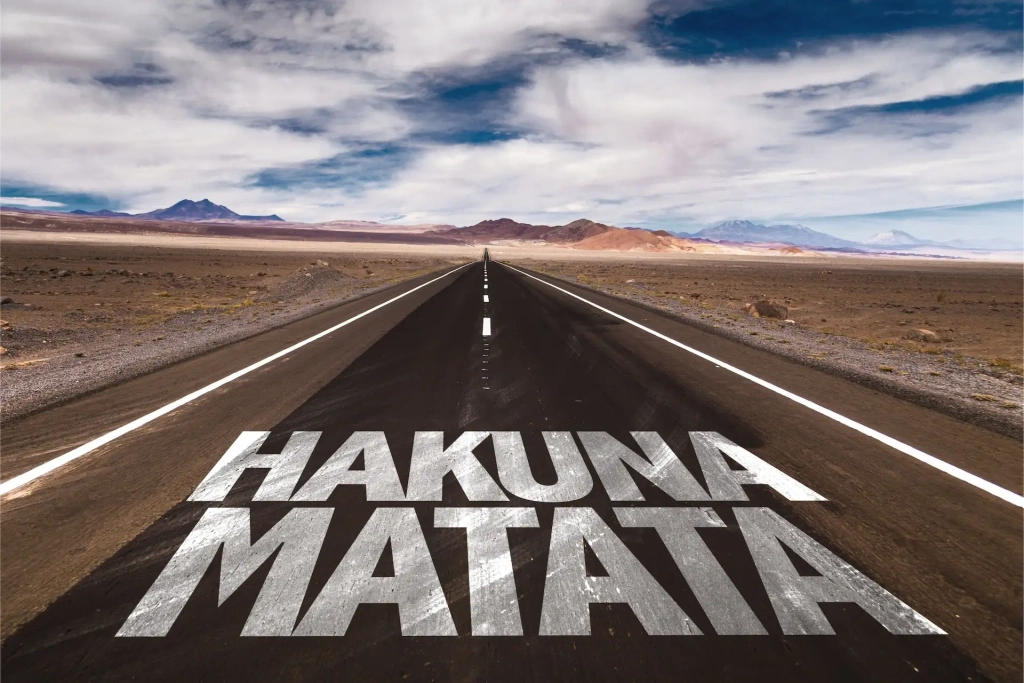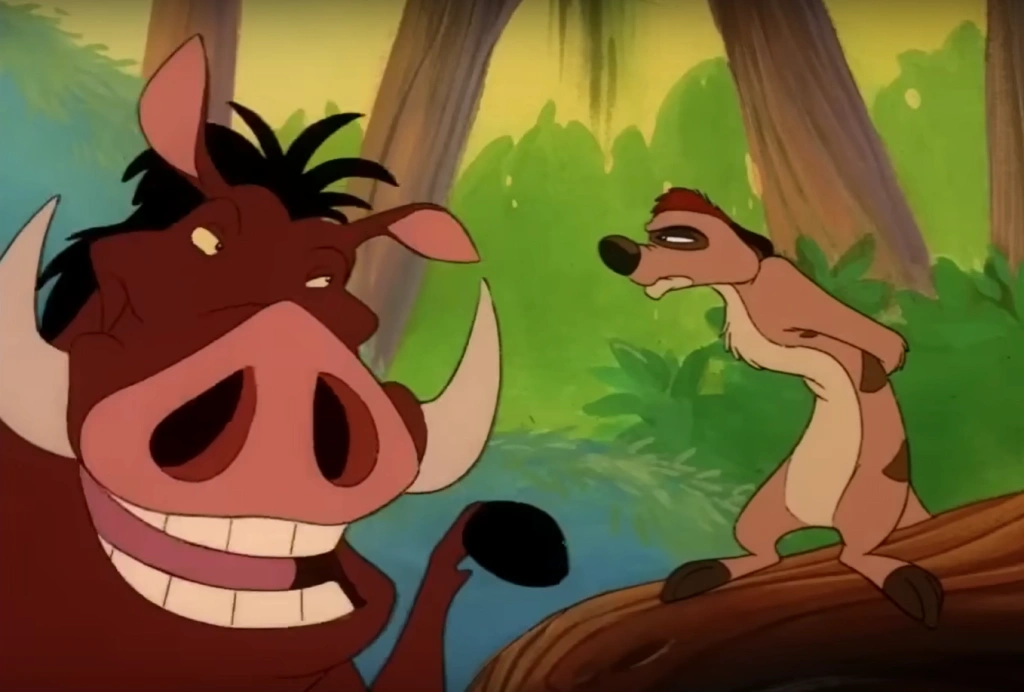Hakuna matata is a phrase in that Merriam-Webster translates as "no problems." The phrase is widely known beyond the Swahili speech communities and East Africa. Hakuna matata in English translates to 'no worries' and shares a carefree spirit similar to Bobby McFerrin’s famous song Don't Worry, Be Happy."
The phrase has its own song, which you may have heard performed by Timon and Pumbaa from The Lion King. The song brought global attention to the phrase, and visitors to East Africa began to use it so much that locals eventually grew tired of it and stopped using it among themselves.
What does Hakuna Matata literally mean?
Hakuna matata literally means "no worries" or "no problems" in Swahili. It's like saying, "There’s nothing to worry about" or "All is good." The phrase breaks down to hakuna, meaning "there isn’t" or "there aren’t," and matata, meaning "problems" or "troubles." It’s used to convey a carefree, easygoing attitude toward life - just a reminder not to stress!
Do people in Africa say Hakuna Matata?
Today, hakuna matata is said mainly to tourists in Tanzania and Kenya. Locals now use a similar phrase with the same meaning — hamna shida. Hamna is a more common equivalent of hakuna, and shida means “problem” or “difficulty.”
When there is actually a reason to worry, a Tanzanian might say shida kidogo (“a little problem”). In reality, there might be more than one problem, and it could be more serious, but it reflects the relaxed, carefree approach to life typical of Tanzanians and, to some extent, Kenyans too. You can find more interesting Swahili words and phrases in our guide.
Hakuna Matata song lyrics
In 1994, Disney Animation was preparing to release The Lion King franchise, where the main character, a lion named Simba, loses his father. For those unfamiliar with how to say “lion” in Swahili, see our blog! The intense storyline meant the writers had to find a way to lighten the mood and pull the audience out of such emotional depths.
This is where the hilarious characters Timon, a meerkat, and Pumbaa, a warthog (whose name Pumbaa also comes from Swahili, meaning “to be foolish, silly, weak-minded, negligent”) come in.
These two embody the hakuna matata philosophy—life without worries. Timon and Pumbaa play an important role in the story, rescuing Simba in the desert and changing the tone from tragedy to comedy.
They needed a catchy and memorable song, and Sir Tim Rice wrote several lyrics, but none quite hit the mark. Then, one of the film’s directors, Roger Allers, who had gone on safari in Kenya in the early 1990s, recalled hearing hakuna matata from a guide. Tim Rice liked it so much that he quickly came up with a lighthearted and quirky Disney song for the upbeat duo of Timon and Pumbaa.
Is Hakuna Matata a positive word?
Yes! The iconic Disney song captures the carefree spirit of hakuna matata. In rural Kenya and especially Tanzania, many embrace this philosophy: they take life as it comes, enjoy simple pleasures, and avoid complicating things unnecessarily. This is essentially what Timon and Pumbaa teach Simba.
When I was a young warthog…
Tim Rice had fun writing "Warthog Rhapsody," where he shares why Pumbaa was cast out of the jungle — because of his smell. This humorous detail became part of the song and amused young viewers.
Elton John composed the music. He was drawn to Disney’s fresh idea to create a new story instead of remaking a classic. They decided to avoid a Broadway musical style, aiming instead for a pop melody that kids would love and easily remember. That’s how hakuna matata was born.
Key lyrics of the song:
Hakuna Matata! What a wonderful phrase
Hakuna Matata! Ain’t no passing craze
It means no worries, for the rest of your days
It’s our problem-free philosophy
Hakuna Matata!
For the full lyrics, see Genius.
The song was memorable and beloved by millions. This is how the phrase “hakuna matata” became popular far beyond East Africa.
And if you visit Tanzania on safari or a tour to climb Kilimanjaro, you’ll probably hear another song with the phrase hakuna matata.
Another Hakuna Matata
In Tanzania and Kenya, guests are often entertained with the song Jambo Bwana, which includes these lines:
Jambo, Jambo, bwana
Habari gani, nzuri sana
Wageni, Mwakaribishwa
Tanzania hakuna matata
In Kenya, the last line sounds like Kenya yetu hakuna matata. This is how it was in the original version by the group Them Mushrooms, recorded in 1982, twelve years before Timon and Pumbaa.
To learn more about the word jambo, see our other article. We wish you a worry-free life and invite you to Tanzania. Come visit this beautiful country and experience the philosophy of hakuna matata for yourself!
All content on Altezza Travel is created with expert insights and thorough research, in line with our Editorial Policy.
Want to know more about Tanzania adventures?
Get in touch with our team! We've explored all the top destinations across Tanzania. Our Kilimanjaro-based adventure consultants are ready to share tips and help you plan your unforgettable journey.

















